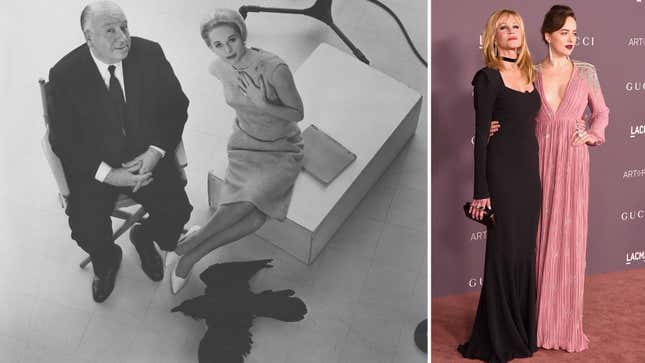Alfred Hitchcock Once Gave Melanie Griffith a Spectacularly Awful Christmas Present
Dakota Johnson said the director’s abuse of her grandmother, Tippi Hendren, even reached her daughter, Griffith.
Celebrities

Vanity Fair’s new cover star is Dakota Johnson. And while the actress shared plenty of more recent Hollywood stories—spilling tea about her star-making role in those “big sex movies”—the profile also included details about one of the most infamous instances of Hollywood abuse: Alfred Hitchcock’s treatment of Johnson’s grandmother, Tippi Hedren.
Johnson is third-generation Hollywood royalty: Her mom is Hedren’s daughter, Melanie Griffith. Griffith was just a kid when her mother signed a contract with Hitchcock, but that doesn’t mean she was spared his emotional abuse. As the VF profile notes, Hitchcock once gave Griffith a spectacularly awful Christmas present: a miniature figurine of her mother lying in a coffin.
“It’s alarming and dark and really, really sad for that little girl,” Johnson told VF. “Really scary.”
Johnson also recalled screening the 2012 HBO film The Girl, which chronicles Hedren’s experiences with Hitchcock, alongside her grandmother. She said that the network didn’t adequately prepare the family for what they were about to see.
-

-

-

-

-

-

-

-

-

-

-

-

-

-

-

-

-

-

-

-

-

-

-

-

-

-

-

-

-

-

-

-

-

-

-

-

-

-

-

-








































